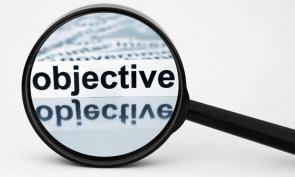
A talented recruiter working with a lateral partner candidate must address the following issues with clarity and confidence:
1. State of the Current Lateral Market
A talented recruiter should be able to speak with authority on the current lateral market in your practice area and in your region.
You may or may not be familiar with the current lateral market. Many partners are unfamiliar with the lateral market, as many partners have been with their firms for an extended period of time and have very little experience in job searches at all. Others have some familiarity with the lateral associate market, but not with the partner market. But you know what? It really doesn't matter because your recruiter should be very informed on the nuances of the current market. It is incredibly basic to say ''associate hiring down, partner hiring up.'' The truth is there is always an ''up'' practice, and it is the job of a recruiter to find it and let you know if you fit in it.
2. Process and Timeline of a Search
Your recruiter should be able to explain the search process to you from beginning to end, and answer any questions that you may have.
As many partners — especially more established partners — might be making their first move in quite some time, it is completely understandable that they would be unacquainted with the procedures in a job search. While all job searches are unique, they tend to follow a basic process and timeline. These will vary from firm-to-firm and practice-to-practice, while still following a basic structure.
3. Partner's Motivation for a Move
Your recruiter should be incredibly interested in your reasons for seeking a move. Why? Because a recruiter can only find you a better platform if he or she knows what is lacking in your current position.
As a lateral partner candidate, it is very important that both you and your recruiter understand the motivation for change. Why are you looking for a new home? We hear many reasons for moves, the most common being (1) a desire for a stronger platform, (2) the need for a more entrepreneurial firm, (3) increased compensation, (4) desire for leadership responsibilities, or (5) financial trouble at their current firm. All people are motivated by different factors, and you should be clear what yours are. If you convey those to your recruiter, you'll have a much higher probability of having your desires and expectations met.
4. Book of Business — Preparation and Valuation
Your recruiter should be well-versed in the preparation and valuation of a lateral partner's book of business.
The preparation of a book of business can provide a great amount of angst for lateral partners. A book of business is simply the value of work that you generate each year. It is incredibly important to prepare a detailed book of business that accurately represents your clients and historic billings.
Many partners get overwhelmed by putting this material on paper. Partners are concerned that they will be overstating their book and, ultimately, setting themselves up for failure at their new firm. Books of business are highly speculative and, believe me, firms understand this. Firms make adjustments for adjusting to a new platform and ramp-up time.
Your recruiter should assist you in the preparation of your book of business and help you to accurately reflect your billings. In ''We Were Told You'd Bring Billables,'' my colleague, Dan Binstock, advocates a three-tiered version of billables: optimistic, conservative, and realistic. That way, you have all your bases covered. If you are considering entering the lateral partner market and are concerned about estimating the value of your book, I'd recommend this article highly.
5. Comparable Information on Similar Firms
Your recruiter should be able to provide you with comparable information on similar and not-so-similar firms.
Comparable information can assist a lateral partner in the decision to leave his or her current firm and join a new firm. As a former tax attorney, I believe in the power of data and information. There is so much information available on firms. It is necessary to understand the strengths and weaknesses of a new firm with respect to its competitors.
Your recruiter should assist in providing data on comparable firms. It is incredibly important to make sure that you compare apples with apples. If you have comparable information, this can help you to manage your expectations about compensation and new opportunities.
6. Partner's Marketability
A recruiter must be able to discuss your marketability and focus your search on firms that will be receptive to your candidacy.
A determination of marketability is important for anyone commencing a job search. Although billables are a crucial factor in partner marketability, there are many additional factors that impact marketability. These factors (e.g., potential for business, practice area, geography, affiliations, group movement, etc.) can vary from search-to-search.
There is little sense in submitting a lateral partner candidate with <$1M in billables to an Am Law 20 firm in my region, and a talented recruiter would know that!
7. Assessment of Risk
Your recruiter can help you to assess risk and to make the right decision for you.
I'll admit it. These are challenging economic times for all of us. And attorneys are, by nature, risk-averse. When contemplating a move, it is necessary to assess the risks of a new firm. Is your new firm in good financial shape? Is the firm looking at your acquisition as a long-term investment? Is the firm prepared for there to be fluctuation in the amount of your portable business? If you have all of the information, you can determine if a move is within the range of your risk appetite.
Conclusion
There is a brisk market for lateral partners right now and lateral partners should assess whether a lateral move makes sense for them. If so, find a talented recruiter who understands your business and motivation who can manage your expectations and help make your job search a very pleasant and exciting experience.
About Harrison Barnes
No legal recruiter in the United States has placed more attorneys at top law firms across every practice area than Harrison Barnes. His unmatched expertise, industry connections, and proven placement strategies have made him the most influential legal career advisor for attorneys seeking success in Big Law, elite boutiques, mid-sized firms, small firms, firms in the largest and smallest markets, and in over 350 separate practice areas.
A Reach Unlike Any Other Legal Recruiter
Most legal recruiters focus only on placing attorneys in large markets or specific practice areas, but Harrison places attorneys at all levels, in all practice areas, and in all locations-from the most prestigious firms in New York, Los Angeles, and Washington, D.C., to small and mid-sized firms in rural markets. Every week, he successfully places attorneys not only in high-demand practice areas like corporate and litigation but also in niche and less commonly recruited areas such as:
- Immigration Law
- Workers Compensation
- Insurance
- Family Law
- Trust and Estate
- Municipal law
- And many more...
This breadth of placements is unheard of in the legal recruiting industry and is a testament to his extraordinary ability to connect attorneys with the right firms, regardless of market size or practice area.
Proven Success at All Levels
With over 25 years of experience, Harrison has successfully placed attorneys at over 1,000 law firms, including:
- Top Am Law 100 firms such including Sullivan and Cromwell, and almost every AmLaw 100 and AmLaw 200 law firm.
- Elite boutique firms with specialized practices
- Mid-sized firms looking to expand their practice areas
- Growing firms in small and rural markets
He has also placed hundreds of law firm partners and has worked on firm and practice area mergers, helping law firms strategically grow their teams.
Unmatched Commitment to Attorney Success - The Story of BCG Attorney Search
Harrison Barnes is not just the most effective legal recruiter in the country, he is also the founder of BCG Attorney Search, a recruiting powerhouse that has helped thousands of attorneys transform their careers. His vision for BCG goes beyond just job placement; it is built on a mission to provide attorneys with opportunities they would never have access to otherwise. Unlike traditional recruiting firms, BCG Attorney Search operates as a career partner, not just a placement service. The firm's unparalleled resources, including a team of over 150 employees, enable it to offer customized job searches, direct outreach to firms, and market intelligence that no other legal recruiting service provides. Attorneys working with Harrison and BCG gain access to hidden opportunities, real-time insights on firm hiring trends, and guidance from a team that truly understands the legal market. You can read more about how BCG Attorney Search revolutionizes legal recruiting here: The Story of BCG Attorney Search and What We Do for You.
The Most Trusted Career Advisor for Attorneys
Harrison's legal career insights are the most widely followed in the profession.
- His articles on BCG Search alone are read by over 150,000 attorneys per month, making his guidance the most sought-after in the legal field. Read his latest insights here.
- He has conducted hundreds of hours of career development webinars, available here: Harrison Barnes Webinar Replays.
- His placement success is unmatched-see examples here: Harrison Barnes' Attorney Placements.
- He has created numerous comprehensive career development courses, including BigLaw Breakthrough, designed to help attorneys land positions at elite law firms.
Submit Your Resume to Work with Harrison Barnes
If you are serious about advancing your legal career and want access to the most sought-after law firm opportunities, Harrison Barnes is the most powerful recruiter to have on your side.
Submit your resume today to start working with him: Submit Resume Here
With an unmatched track record of success, a vast team of over 150 dedicated employees, and a reach into every market and practice area, Harrison Barnes is the recruiter who makes career transformations happen and has the talent and resources behind him to make this happen.
A Relentless Commitment to Attorney Success
Unlike most recruiters who work with only a narrow subset of attorneys, Harrison Barnes works with lawyers at all stages of their careers, from junior associates to senior partners, in every practice area imaginable. His placements are not limited to only those with "elite" credentials-he has helped thousands of attorneys, including those who thought it was impossible to move firms, find their next great opportunity.
Harrison's work is backed by a team of over 150 professionals who work around the clock to uncover hidden job opportunities at law firms across the country. His team:
- Finds and creates job openings that aren't publicly listed, giving attorneys access to exclusive opportunities.
- Works closely with candidates to ensure their resumes and applications stand out.
- Provides ongoing guidance and career coaching to help attorneys navigate interviews, negotiations, and transitions successfully.
This level of dedicated support is unmatched in the legal recruiting industry.
A Legal Recruiter Who Changes Lives
Harrison believes that every attorney-no matter their background, law school, or previous experience-has the potential to find success in the right law firm environment. Many attorneys come to him feeling stuck in their careers, underpaid, or unsure of their next steps. Through his unique ability to identify the right opportunities, he helps attorneys transform their careers in ways they never thought possible.
He has worked with:
- Attorneys making below-market salaries who went on to double or triple their earnings at new firms.
- Senior attorneys who believed they were "too experienced" to make a move and found better roles with firms eager for their expertise.
- Attorneys in small or remote markets who assumed they had no options-only to be placed at strong firms they never knew existed.
- Partners looking for a better platform or more autonomy who successfully transitioned to firms where they could grow their practice.
For attorneys who think their options are limited, Harrison Barnes has proven time and time again that opportunities exist-often in places they never expected.
Submit Your Resume Today - Start Your Career Transformation
If you want to explore new career opportunities, Harrison Barnes and BCG Attorney Search are your best resources. Whether you are looking for a BigLaw position, a boutique firm, or a move to a better work environment, Harrison's expertise will help you take control of your future.
Submit Your Resume Here to get started with Harrison Barnes today.
Harrison's reach, experience, and proven results make him the best legal recruiter in the industry. Don't settle for an average recruiter-work with the one who has changed the careers of thousands of attorneys and can do the same for you.
BCG Attorney Search matches attorneys and law firms with unparalleled expertise and drive, while achieving results. Known globally for its success in locating and placing attorneys in law firms of all sizes, BCG Attorney Search has placed thousands of attorneys in law firms in thousands of different law firms around the country. Unlike other legal placement firms, BCG Attorney Search brings massive resources of over 150 employees to its placement efforts locating positions and opportunities its competitors simply cannot. Every legal recruiter at BCG Attorney Search is a former successful attorney who attended a top law school, worked in top law firms and brought massive drive and commitment to their work. BCG Attorney Search legal recruiters take your legal career seriously and understand attorneys. For more information, please visit www.BCGSearch.com.
Harrison Barnes does a weekly free webinar with live Q&A for attorneys and law students each Wednesday at 10:00 am PST. You can attend anonymously and ask questions about your career, this article, or any other legal career-related topics. You can sign up for the weekly webinar here: Register on Zoom
Harrison also does a weekly free webinar with live Q&A for law firms, companies, and others who hire attorneys each Wednesday at 10:00 am PST. You can sign up for the weekly webinar here: Register on Zoom
You can browse a list of past webinars here: Webinar Replays
You can also listen to Harrison Barnes Podcasts here: Attorney Career Advice Podcasts
You can also read Harrison Barnes' articles and books here: Harrison's Perspectives
Harrison Barnes is the legal profession's mentor and may be the only person in your legal career who will tell you why you are not reaching your full potential and what you really need to do to grow as an attorney--regardless of how much it hurts. If you prefer truth to stagnation, growth to comfort, and actionable ideas instead of fluffy concepts, you and Harrison will get along just fine. If, however, you want to stay where you are, talk about your past successes, and feel comfortable, Harrison is not for you.
Truly great mentors are like parents, doctors, therapists, spiritual figures, and others because in order to help you they need to expose you to pain and expose your weaknesses. But suppose you act on the advice and pain created by a mentor. In that case, you will become better: a better attorney, better employees, a better boss, know where you are going, and appreciate where you have been--you will hopefully also become a happier and better person. As you learn from Harrison, he hopes he will become your mentor.
To read more career and life advice articles visit Harrison's personal blog.





